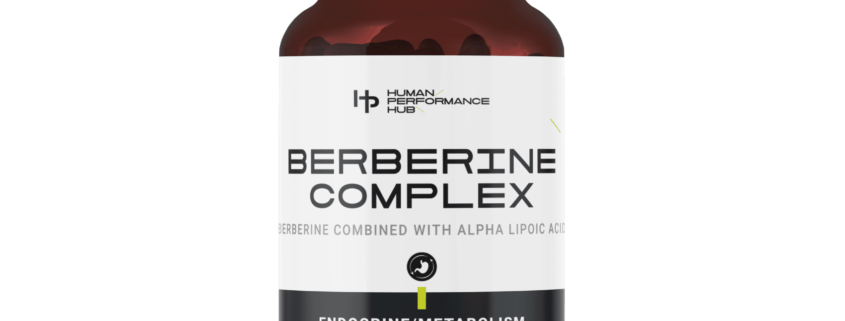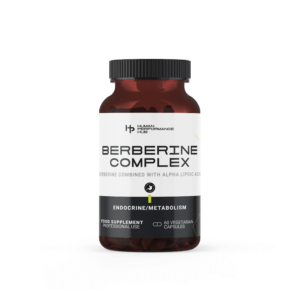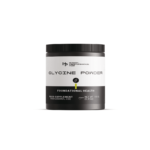Berberine has a number of health benefits. In fact, it’s been used in traditional Chinese medicine for hundreds of years. But, one of the lesser known uses of berberine is for exercise and performance. In this article, we look at how berberine impacts exercise, in particular how it can help to build muscle and support fat loss.
So, does berberine affect exercise? Berberine doesn’t directly affect exercise but may have an impact on results. For example, berberine helps to increase energy, encourage fat loss and energy storage in the muscles, and helps to reduce muscle damage associated with intense workouts. This is beneficial for those looking to build muscle.
Read on to learn more about the relationship between berberine and exercise with Human Performance Hub.
Does Taking Berberine Impact Exercise?
There’s limited evidence to suggest that berberine directly impacts exercise. It may, however, impact results. Research into the effects of berberine on metabolism, glucose intake and recovery suggests that it increases energy levels. It may also encourage both fat loss and energy storage in the muscles, making it an ideal supplement for bodybuilders.
Studies found that berberine downregulates genes that are responsible for cholesterol absorption into the intestines, preventing fat accumulations (1, 2). It also activates brown fat thermogenesis which can improve energy levels whilst limiting weight gain.
Additionally, berberine may benefit recovery from exercise in that it possesses antioxidant and anti-inflammatory properties. Further to this, berberine may reduce oxidative stress markers, combatting the damage associated with intense workouts.
Does Berberine Affect Muscle Gain?
Berberine has a similar action to insulin, improving glucose uptake into cells. For those looking to build muscle, this boosts energy production, helps to prevent cell breakdown and increases energy storage, all of which are central to building muscle mass.
Does Berberine Affect Testosterone?
Previously, research suggested that berberine could lower testosterone levels in men. However, more recent studies found that berberine does not lower testosterone in men. Although, trials found that berberine does lower testosterone in women that have polycystic ovary syndrome.
Studies are inconsistent on this matter, with some researchers suggesting that the discrepancies between men and women may simply be down to dosage, or has some unknown relation to polycystic ovary syndrome.
Does Berberine Speed Up Metabolism?
Yes, berberine is thought to speed up metabolism and reduce blood glucose. This limits the amount of glucose and lipids that get stored in the body, therefore assisting weight/fat loss.
Should You Take Berberine Before or After a Workout?
It doesn’t matter too much whether you take berberine pre-workout or post-workout, but note that it has a half-life of around 5 hours. The main thing to consider when taking berberine is that it shouldn’t be consumed on an empty stomach as it risks hypoglycemia. As such, it’s best to take it with a meal – most choose to take one serving with breakfast, and a second serving with their evening meal. This also accounts for the 5- hour half-life, allowing you to make the most of the supplement.
How Much Berberine Should I Take
How much berberine you take depends on your goals. But, if you’re looking to build muscle mass, most bodybuilders take around 1-1.5g of berberine per day, divided into 2-3 servings.
Health Benefits of Taking Berberine
Aside from fat loss and metabolic benefits, berberine has a number of other health benefits, including:
Heart Health
Research suggests that berberine may be beneficial in a number of heart health concerns, including heart disease – the number one cause of death worldwide.
According to a review of 16 studies, berberine may:
- Lower total cholesterol
- Lower LDL (bad) cholesterol
- Lower blood triglycerides
- Increase HDL (good) cholesterol
Further to this, diabetes, high blood sugar levels, and obesity are also major risk factors for heart disease, all of which seem to be improved with berberine.
Other health benefits of berberine include:
- May help to improve symptoms of depression
- Shown to have potent antioxidant and anti-inflammatory properties (1, 2, 3)
- Reduces the growth of harmful microorganisms, including bacteria, viruses, and fungi (1, 2, 3)
- May reduce fat build-up in the liver
Top Quality Berberine at Human Performance Hub
Find top quality berberine supplements at Human Performance Hub. Choose between Berberine Complex Vegetarian Capsules, or Gluco Support Capsules which contain berberine, cinnamon extract, banaba extract and ginseng.
Alternatively, if you’re unsure what you need to achieve your goals, contact us today for tailored advice.
FAQs
What is Berberine?
Berberine is a bioactive compound found in several different plants. Technically an alkaloid, it has a yellow colour and is also often used as a dye. This supplement has a long history of use in traditional Chinese medicine and is today most commonly used for managing diabetes, cholesterol and high blood pressure.
What are the Side Effects of Berberine?
The potential side effects of taking berberine include:
- Diarrhoea
- Constipation
- Excessive gas
- Upset stomach
- Hypoglycaemia
Who Should Not Take Berberine?
Adults that take other medication, such as insulin, liver, clotting and pressure medication should consult a doctor before proceeding. Infants, children and breastfeeding or pregnant women should avoid taking the supplement altogether.




